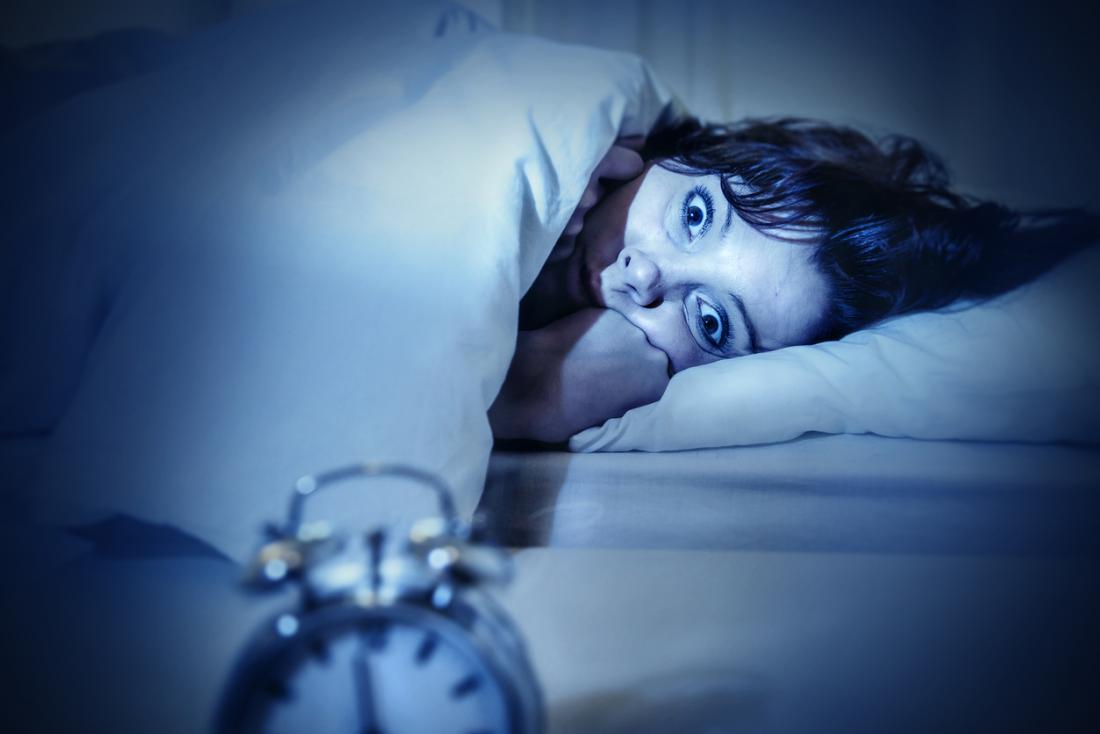
Sleep paralysis locks a person in a strange state between dreaming and waking, where they can’t move but might experience weird hallucinations. It affects only 7.6 percent of the general population, but it can be a terrifying experience for those it strikes. Here are some frightening things that can happen when sleep paralysis strikes:
You can’t move
Just like the name suggests, sleep paralysis—one of the sleep disorders you should definitely know about—literally paralyzes you. No matter how hard you want to move your arms and legs or sit straight up in bed to break the moment, you just can’t. This happens when you experience REM sleep (the deepest stage of sleep where dreams occur) while you’re awake. REM sleep, like each stage of sleep, matters.
“There’s a disconnect between the body and mind, so your mind is awake but your body hasn’t caught up and is paralyzed. This can be very scary,” says Raj Dasgupta, MD, a fellow of the American Academy of Sleep Medicine and assistant professor of clinical medicine at the Keck School of Medicine at the University of Southern California. The good news is, it’s temporary, and within a few seconds to minutes you’ll be able to move again.
You feel like you can’t breathe
Part of what makes sleep paralysis so panic-inducing is that in addition to being immobile, many people feel like they can’t catch their breath or are choking. “In your mind, you’re still stuck in REM sleep when your breathing is shallowest, but you’re awake and want to take that deep breath…and can’t,” says Dr. Dasgupta.
Patients also describe a sensation of someone sitting heavily on their chest compressing their air supply, a phenomenon dubbed the Incubus by researchers of sleep paralysis (named after the classic painting “The Nightmare” by Swiss artist Henry Fuseli). If this happens, try to stay calm and remember the moment will quickly pass.
You have hallucinations
As if being temporarily paralyzed wasn’t weird enough, many sleep paralysis patients also experience hallucinations of snakes or giant insects crawling all over their body while they lie in bed helpless.
It can be triggered by exhaustion or stress
“One of the biggest causes of sleep paralysis is sleep deprivation, especially from jet lag,” says Dr. Dasgupta. “When you finally get to sleep, your body rebounds to the stage you need most, which is REM. The more time you spend in REM, the more chance you have to experience sleep paralysis.”
Stress and anxiety can also increase your chances of an episode, as well as suddenly halting antidepressant medication.
You think someone’s in the room
One of the most common sleep paralysis experiences is to sense or see an intruder in the room, doorway, or right outside the window. “Your mind is awake and hyper vigilant so it goes into protection mode, which can cause hallucinations of someone being in the room,” says Dr. Dasgupta.
Other intruders his patients have described over and over include a demon, an old hag, a creepy child with a poorly defined face, and an overall evil presence.
It can happen while you’re falling asleep
Most people think of sleep paralysis as waking up in the middle of the night with a terrifying inability to move. But some people, particularly those who suffer from narcolepsy, actually experience it while they’re falling asleep. “People with narcolepsy fall into REM sleep right away, so that’s why it strikes right away,” says Dr. Dasgupta. Usually, REM sleep doesn’t occur until between 90 and 120 minutes after you nod off.
You can have an out-of-body experience
One study that explored the most common sleep paralysis hallucinations discovered that some people have “unusual bodily experiences” where they have a feeling of floating or flying, feelings of bliss, or other out-of-body experiences.
It can cause you to panic
Suddenly waking up without being able to move or breathe well can get your heart racing and leave you gasping for air. But try to relax. “The most important thing for people to know is that it happens to a lot of people and it will pass. You just need to let your body catch up to your brain,” says Dr. Dasgupta.

























